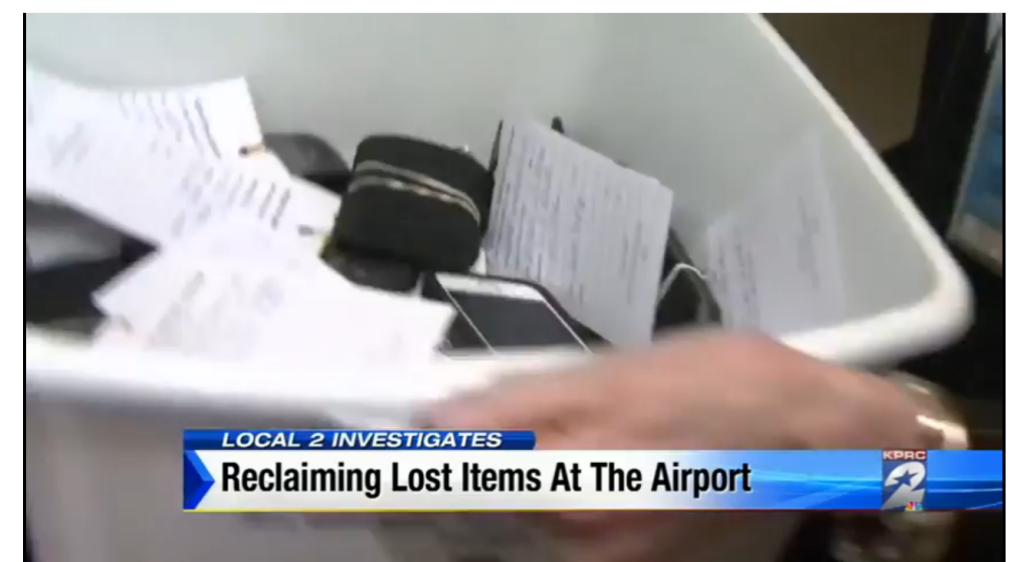
Bush Intercontinental Airport’s new lost and found is taking more than 1,000 calls each month from people who have left something behind in the concourse.
Judith Felan gets calls for everything you can imagine. Recently, she spent time trying to recover a young boy’s stuffed animal after his grandmother reported his frog missing.
“He was crying himself to sleep,” Felan said. “He told his grandmother he wanted to die if he didn’t find his frog.”
The boy’s grandmother even sent a photo of the frog, which hasn’t been found.
The Houston Airport lost and found System opened a new storefront in August in terminal E. It allows passengers to talk face to face with a member of the lost and found staff.
The airport collects more than a dozen lost cellphones and tablets each month, among other items.
“One gentleman lost a wallet and we found several business cards from a firm in Canada,” said Germaine Archer, the lost and found office manager. “I called the supervisor of the site. He emailed the guy. The guy was in here the next day.”
Some passengers leave entire suitcases.
“You can see some of these suitcases are packed,” Archer said.
Sometimes her team reaches the owner, but they don’t come to claim their lost items.
“Some are embarrassed,” Archer said. “We’re still laughing about something from last month. When we do find the person, they tend to not come and pick them up.”
Items that end up in the airport’s lost and found have been left in the common areas. Items left at TSA checkpoints are still kept by TSA’s lost and found, while those left at the airport flight gates are handled by individual airlines, Archer said.
Most people call in asking about items, but the airport features a new online reporting system. Information about missing items is entered into a database that matches items and owners.
By far the most frequently lost items are electronic. Lost and found staff try to charge cellphones, hoping that owners will call them. If someone does call, staff members answer the phone and try to find the owner.
They also use other methods.
“We’ll ask Siri, ‘Who does this phone belong to,’ and we’ll get an answer back in Japanese,” Archer said. “We’re like, ‘That’s not going to do us any good.'”
Sometimes people call and try to pretend they lost a common item, such as an iPad.
The staff asks people to share something unique about the device.
“We ask, ‘What’s your background picture?’” Felan said. “Sometimes they will say, ‘I’ll call right back,’ but never do.”
If items aren’t claimed, most are eventually destroyed after many weeks.
Credit cards and personal documents are shredded and destroyed. Passports are given to Customs and Border Protection.
Unclaimed clothes are washed and given to the Salvation Army, Archer said.
